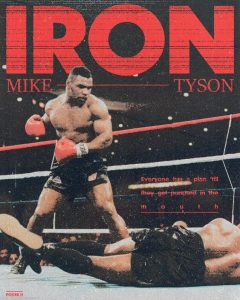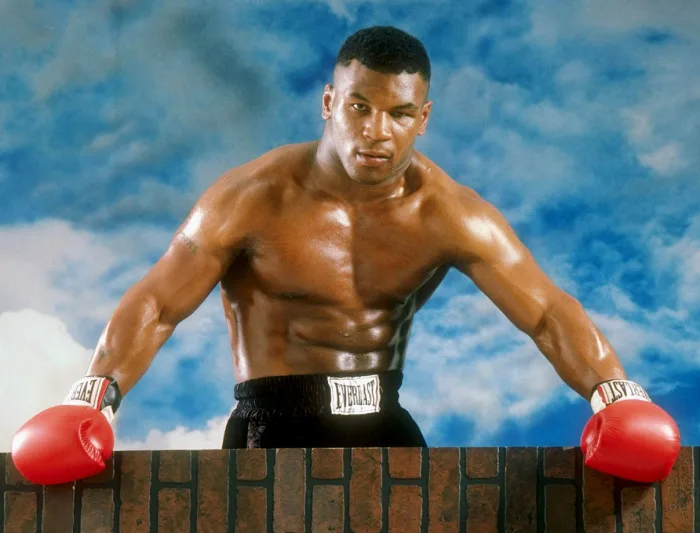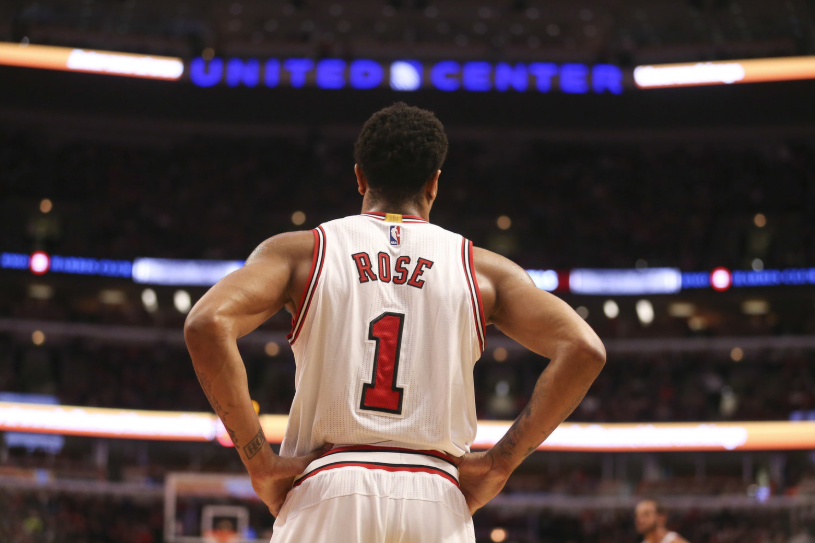From the gritty streets of Brownsville to the pinnacle of boxing fame, the story of Michael Gerard Tyson is a testament to the indomitable human spirit. Raised by a single mother in a world that offered more challenges than opportunities, Tyson’s journey is a compelling saga of resilience and determination. When he was two-years-old, Tyson’s father left, leaving his mother, Lorna Smith Tyson, to take care of him and his siblings. Growing up without a father figure was a challenging experience, but Lorna worked hard to provide for her family as the breadwinner.
Growing up in Brooklyn, Tyson faced numerous challenges, including poverty, violence, and crime. His early years were spent in a neighborhood where bone-crushing fights were a common occurrence. Since death was always around the corner and self-defense was as necessary as bread and butter, Mike was inducted into the art of fighting at a very early age. His neighborhood was notorious for its high crime rate and frequent instances of violence, making his upbringing a tough and challenging experience in this bone-crushing environment, where resilience and determination were shaped in the face of adversity.

Mike Tyson’s fascination with pigeons began at the age of 10-years-old. When he was a kid, other kids bullied him, so he found solace in the nonjudgmental company of pigeons. He could happily spend hours playing with these birds and tending to their needs because they never judged him. One day, a local bully killed one of Tyson’s pigeons, leading to a physical altercation. This incident caught the attention of Bobby Stewart, a social worker who would later play a key role in Tyson’s boxing career.
When Tyson was 11-years-old, he took part in a daring escapade with his friends. His friends stole jewelry from a store on Picking Avenue, known for its jewelry shops catering to low-income individuals. The heist turned into a high-adrenaline chase with the police, and it ended with a gunshot as they sought refuge in an abandoned building. What surprised Tyson was that the police, who were supposedly chasing them, hesitated to enter their hiding place, creating a surreal moment in his early encounters with the law. By the time Mike was 13-years-old, he had been arrested 38 times; his life became inextricably entwined with the customary struggles of survival.
Tragedy struck Tyson’s family when his mother passed away when he was only 16. Additionally, his sister died in 1990 at the age of 24. These losses left deep emotional scars on him, who expressed the pain of not having the opportunity to share moments of happiness and accomplishment with his mother. The absence of familial support during his challenging childhood contributed to Tyson’s tumultuous journey.
The pain and suffering resulting from the loss of family members left an indelible mark on his outlook. He admitted as much when he said: “I never saw my mother happy with me and proud of me for doing something. She only knew me as being a wild kid running the streets, coming home with new clothes that she knew I didn’t pay for. I never got a chance to talk to her or know about her. Professionally, it has no effect, but it’s crushing emotionally and personally.”
Despite these hardships, Tyson found solace and refuge through boxing. A member of various street gangs at an early age, Tyson was sent to reform school in upstate New York in 1978. It was there that social worker and boxing aficionado Bobby Stewart recognized his boxing potential and directed him to renowned trainer Cus D’Amato, who became his legal guardian. Tyson compiled a 24–3 record as an amateur and turned professional in 1985.
D’Amato taught Tyson a peekaboo boxing style, with hands held close to his cheeks and a continuous bobbing motion in the boxing ring that made his defense almost impenetrable. At 5 feet 11 inches tall and weighing about 218 pounds; Tyson was short and lacked the quintessential heavyweight boxer’s appearance, whereas his surprising quickness and aggressiveness in the ring overwhelmed his opponents.

In 1985, 18-years-old, Tyson turned professional and quickly gained a reputation as a formidable force in the boxing world. His unique style, which combined speed, power, and intimidation, helped him achieve a series of rapid victories. In November 1986, Tyson became the youngest heavyweight champion in history by defeating Trevor Berbick, claiming the WBC title.
The triumph of becoming the youngest heavyweight champion, however, was tinged with tragedy as Cus D’Amato, his mentor, passed away that same year. The loss of his guiding figure was a profound blow, but Mike demonstrated resilience, continuing his boxing career. After the deaths of D’Amato and manager Jimmy Jacobs, Tyson aligned with controversial promoter Don King. He made 10 successful defenses of his world heavyweight title, including victories over former champions Larry Holmes and Michael Spinks.
In 1988, Tyson married actress Robin Givens, but their relationship ended in divorce amidst allegations of misconduct. This cataclysmic period saw numerous legal challenges. On February 11, 1990, Tyson suffered a significant setback in his boxing career, losing the championship to James ‘Buster’ Douglas in a historic upset. Tyson’s life took a darker turn in 1992 when he faced legal troubles, leading to a significant prison sentence. This legal ordeal not only disrupted his boxing career but added another layer of hardship to his life. Tyson served three years of his sentence before being released on parole in 1995.
Upon his release, Tyson attempted to revive his boxing career, but he faced challenges both in and out of the ring. Financial difficulties, legal issues, and struggles with personal demons continued to haunt him. Despite moments of success in the ring, including winning the WBA title in 1996, Tyson’s life outside of boxing remained incendiary.
In 1997, Mike Tyson and Evander Holyfield faced each other in a highly anticipated rematch. This bout would become infamous not for its boxing prowess but for an unusual turn of events. During the fight, Tyson bit off a portion of Holyfield’s ear. This shocking incident made headlines globally and added a bizarre chapter to Tyson’s storied career. The controversial moment remains etched in boxing history as one of the most unusual and talked-about events in the sport.
In the following years, Tyson gradually rebuilt his life. He officially retired from professional boxing in 2005 while continuing to make occasional comebacks. Outside the ring, Tyson found success as an entertainer, appearing in movies, and television shows, and even launching a one-man stage show.
Mike Tyson’s early life was marked by poverty, crime, and a turbulent family situation. Through boxing, he found a way to escape the challenges of his upbringing and rise to become one of the most iconic figures in the sport. However, his journey was fraught with hardships, including the loss of his mentor, legal troubles, and personal struggles. Despite the setbacks, his resilience and determination allowed him to carve out a lasting legacy in the boxing world.
The story of Mike Tyson’s early life serves as a testament to the power of perseverance in the face of adversity. From the cruel streets of Brownsville to the pinnacle of boxing greatness, Tyson’s journey reflects not only the physical prowess that made him a legendary boxer but also the mental and emotional strength that allowed him to overcome the odds. The combination of hardship, mentorship, and a relentless passion for the sport shaped Tyson into an enduring figure in the annals of boxing history.
















Mr. Z • Jan 5, 2024 at 1:45 pm South Lakes Sentinel Pick
One of the most fascinating superstars because his arc includes both good and bad. Despite his history, the older Mike Tyson has become very self aware and has tried to address his issues. He is an interesting example of someone who has many demons and has tried getting rid of their power. He has a powerful story to share.